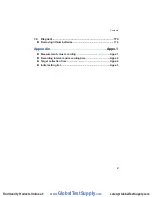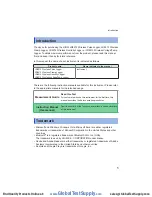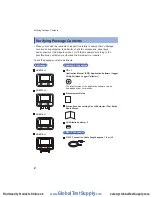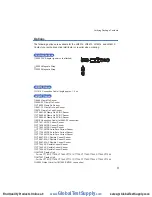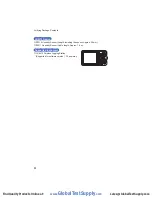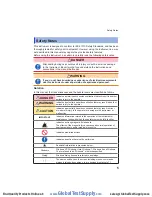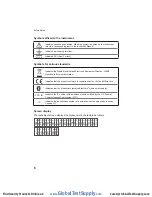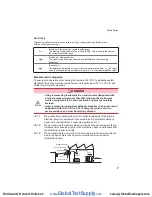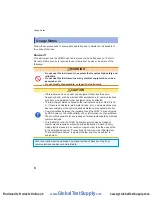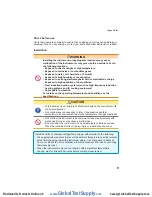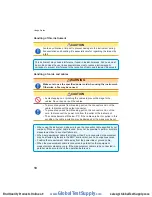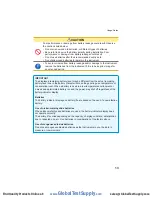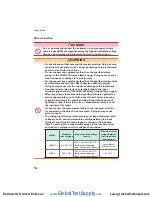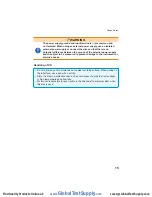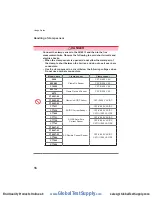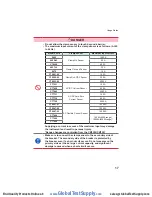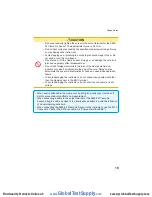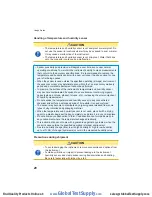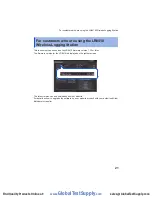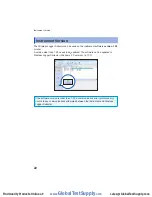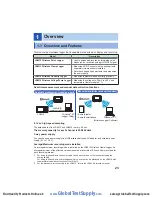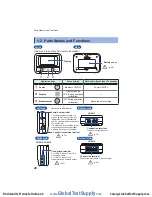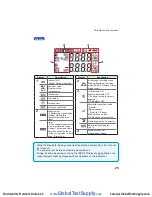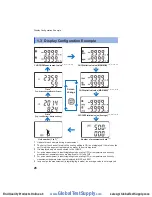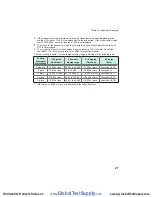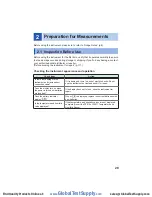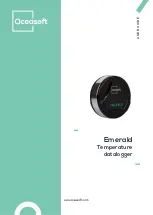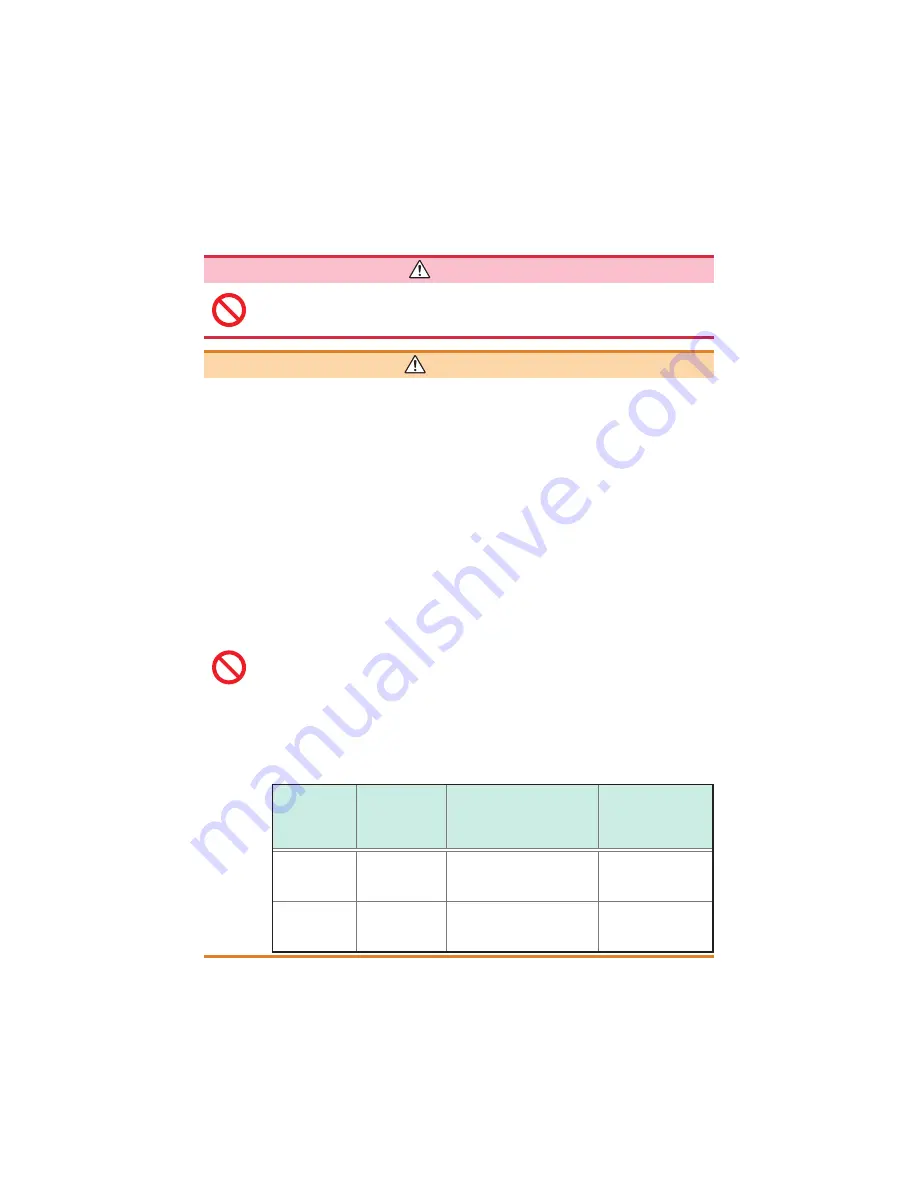
14
Usage Notes
Wire connection
DANGER
Do not permanently connect the instrument in an environment where
there is a possibility of surges exceeding the dielectric withstand voltage.
Doing so may damage the instrument and result in personal injury.
WARNING
•
Do not allow input that exceeds the maximum rating. Doing so may
cause heat to generate, which can cause damage to the instrument,
short circuits or electric shocks.
•
Do not connect any equipment other than the specified clamp
sensor to the LR8513 Wireless Clamp Logger. Doing so may cause
electric shocks or damage to the instrument.
•
Do not connect any equipment other than the specified temperature
and humidity sensor to the LR8514 Wireless Humidity Logger.
Doing so may cause electric shocks or damage to the instrument.
•
A semiconductor relay is used to isolate between the input
terminals and channel of the LR8515 Wireless Voltage/Temp Logger.
When any voltage that exceeds the specified rating is applied, the
semiconductor relay can fail with a short-circuit. Never input any
voltage that exceeds the specified rating. Especially be aware of
lightning surges. If there is an error in measurement values, send
the instrument for repair.
•
Do not connect the measurement cable to the instrument while it
is connected to the object to be measured. Doing so may cause
electric shocks.
•
The analog input terminal maximum input voltage, maximum rated
voltage to earth, and maximum rated voltage between the input
terminals and channel of each logger is shown in the following
table. To avoid electric shocks and damage to the instrument, do
not input any voltage over the voltages shown below.
Model
Maximum
input voltage
Maximum rated voltage
to earth
Maximum rated
voltage between
input terminals
and channel
LR8512
0 to 50 V DC
30 V AC rms or 60 V DC
(between each analog
input channel and chassis)
Non-isolated
(GND common)
LR8515
±50 V DC
30 V AC rms or 60 V DC
(between each analog
input channel and chassis)
60 V DC
www.
GlobalTestSupply
.com
Find Quality Products Online at:

